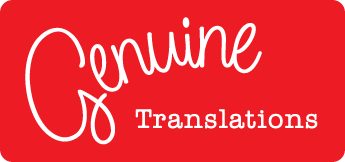Translations for Export
Exporting your products or services can bring numerous benefits to your business. However, it can be an overwhelming process. Legislation, paperwork or the linguistic and cultural differences between countries are a few of the things that need to be taken into consideration.
Translation and localisation play a key role in the export journey. If the country you would like to export your service or product to speaks a different language or dialect, your audience would like to buy in that language, even if they have some knowledge of English.
According to research, over 70% of consumers are more likely to buy a product or service with information in their own language.
Here is a guide on the general translation and localisation requirements for exporters:
Attracting your foreign audience
Your website is probably the first thing your overseas prospects will look at, as it’s easily available and accessible, so it’s important to localise the pages with the most relevant and engaging content. By localising your website, you don’t only translate the words and meaning, but also adapt these to the culture. It is also important to research the keywords that your audience is likely to use in their searches and introduce the SEO to your website in that language. Please check our Website Localisation page to find out more about this service and how we can help.
Apart from the website, think about all the marketing literature you currently have or plan to have, which one would be more effective and cost-effective when it comes to attracting and communicating with your target clients? Are you planning to attend trade shows in the country or visit agents and clients there? In that case, your business card and brochures should also be translated. Please have a look at other marketing material we can translate here.
Do you sell on Amazon?
If the answer is yes, translation and optimisation of your product listings for your target countries is also key. Find out more in our E-commerce Translations page.
If advertising campaigns form part of your export strategy, translation then becomes “transcreation”, and a transcreator will create new content for your target country, working from the English advert (if any) or your specifications. To learn more about transcreation and how we can help, please visit our Transcreation page.
Translation required by law
If what you are selling is a product, depending on the product, you will need the pack information, labels and instructions translated for it to be legally-compliant. In the case of food labelling, most countries need this in the local language too. Therefore, translation here is not an option, but a legal requirement. Your trade adviser will be able to help you identify your specific requirements.
When it comes to the translation of legal documents for export, the type of documents requiring translation will also depend on your product/service and the country you are exporting to. Typically, you will need to translate contracts and your business terms and conditions.
Also, depending on the country, the legal translations may need to be carried out by a certified translator, a sworn translator or a Notary Public. On our Legal Translations page, we expand on the different types of certified translations.
Please contact us to discuss how we can fit the above in your export strategy.
